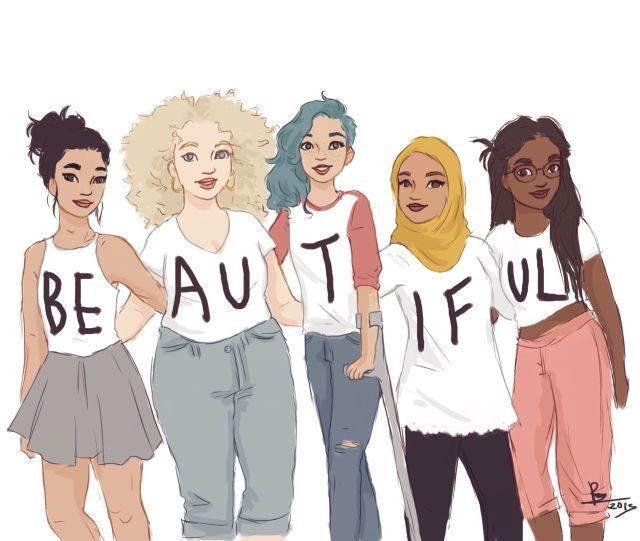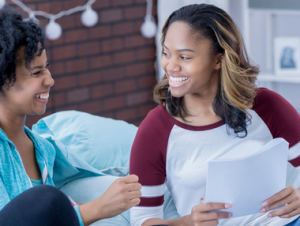Your Body Image: 6 Things That Will Make You Think Twice
Do you ever find yourself looking in the mirror thinking “I wish I had …..[bigger, thinner, longer, better ____________]” – this is you looking at your body image.
Every day youth are bombarded with images and messages about their appearance and the impossible beauty standards put forth by society. Measuring your worth by how your body looks is a slippery slope of negative self-talk, body bashing, and self-loathing.
What if you could use your appearance to tell a story, to share your uniqueness, to uplift your self-image and stop the negativity in its tracks?
If you’re ready to think twice about how you feel about your body image, read on.
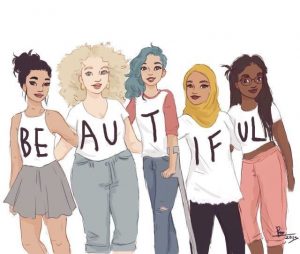
Photo found on www.medium.com, an article by Juliet Torrisi.
The Difference Between Self Image and Body Image
Self-image is a larger term that includes how you see yourself in relation to yourself, other people, and to the world that you live in. Basically anything that is involved in ‘self’ impacts and is a part of your self image – values, beliefs, memories, experiences, thoughts, feelings, physical appearance, spirituality etc. Your self-image and sense of self is always evolving and changing.
Saying that, there are some core messages, or beliefs, that develop when you are younger (like under the age of 10), when we are generally very reliant on the adults in our life. They become core to your identity and how you see yourself. Sometimes you might be clearly aware of what they are and sometimes these beliefs might be a little more on the subconscious side. These could be things that were verbally said – ‘you are so athletic’ or ‘she’s so shy!’ The things you believe can also be nonverbal – things that weren’t said, and/or behaviours from others that you then internalize as beliefs about yourself.
Body image is one aspect of self-image that focuses on how you see your self physically – Your thoughts, feelings, and perceptions about your physical appearance. Body image is built on many different things – past experiences, things you see in the world, messages you get from parents/adults, friends, cultural groups, etc. Media is a big influence on how you develop body image as well – what you see and hear on social media, in shows, movies, and advertisements.
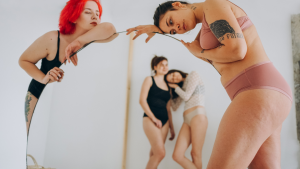
Photo from Canva Pro
Ideal Body Image
What is an ideal body image anyways?
The way I see it, it’s about feeling good in your own skin – with how your body looks, knowing that it is unique. When you’re aware of what your body is capable of; you feel empowered by that. Noticing the power in your body and all that it is is an important first step – INSTEAD of picking apart the flaws – the things you think are wrong with it, or how it doesn’t meet up to certain standards (standards that are, for the most part, unattainable and quite unrealistic to reach).
An ideal body image supports your wellbeing and mental health.
How can you move towards a body image that supports your wellbeing – and make good choices for your mental health – in spite of all the different things and people that influence your self-image?
Here are six ways to think twice about your body image:
1. Find Your Body Image Role Models
Surround yourself with people who practice body positivity for themselves. People who love their bodies even with their imperfections, and even if they don’t look like what social media advertises as the body. They love themselves and focus on what their body can do, and on putting things on and in their body that make them feel good, strong, and powerful.
People who may have goals for their bodies – like strengthening their body, increasing their fitness level, or gaining/losing weight – but are kind and compassionate with themselves. They love themselves where they are at, while having their goals.
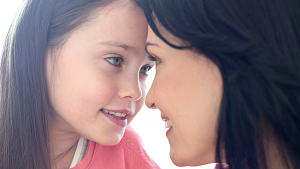
Photo from Canva Pro
Body image role models can be in the circle of people you already know – a parent, teacher, friend, or other relative.
You can also look for role models outside of your circle too, people you don’t know. These could be influencers or famous people that are modelling body positivity.
Find public figures, celebrities or influencers that look similar to you – e.g. same ethnicity, body shape, or style. It can even be about finding a specific feature – a hairstyle , or something else unique about your body. It’s a great thing to have more diversity and representation of different types of people so you can do this! For me, I also found people who had similar values and beliefs that I have.
It’s important to see and hear others like you, who love their bodies, so it’s easier to see that you can love your body, too.
2. Be Critical of Social Media
There’s a saying that goes something like this: “we compare our behind-the-scenes with everyone’s highlight reels” and it is often very true. A lot of media out there – photos, videos, etc. – are not a true depiction of reality.
When you see an image or someone on a show and you notice you’re feeling a little low on yourself, you can do a little check-in and ask yourself:
- Is this photo really how this person looks? Is it a real life image, or has it been altered? Is it just a highlight moment, or is this how this person looks on the daily?
- How much time and energy did it take for this person to look this way? Is that something I want in my life?

Photo by Tim Mossholder on Unsplash
- What do I admire about people in my life that I respect? Do I admire just their looks, or are there other things I respect and look up to them for? What other things could be important?
- Could this image have been photoshopped? Is there a filter or other edits going on?
It’s really important to be critical of the different things you see. To question the highlight reels being posted on social media vs what reality really looks like.
Every body comes in different shapes and sizes, with different marks, tones, scars and unique features. Your body tells the story of your life! Of who you are, what you’ve done, where you’ve been, and how you’ve gotten this far.
3. Know Where to Get Information

Photo by Nick Morrison on Unsplash
Seek out credible resources – through coaches, teachers, websites for teens etc. Here are a few to get you started:
- Self-esteem and body image: www.youngwomenshealth.org
- Nutrition and exercise with different tips: www.safeteens.org
- FREE download: Body Image Tips
4. Social Media Breaks
Did you know being on social media increases cortisol levels, which is your stress hormone?
When you’re online for long periods of time, it increases your stress response. It comes with dopamine spikes (depending on what you’re doing), the natural pleasure/reward chemicals, followed by a crash or constant stress, which can ultimately plummet your mood, confidence, and self-esteem – you really begin to feel down on yourself.
It’s important to get breaks from this rush of stress so you can be in a place to make decisions that are going to support a healthy self image. The better you feel about yourself, the more likely you will see yourself in a positive light, and take actions that line up with the kind of body image you want.

Photo from Canva Pro
Here’s how this plays out sometimes. Say you were planning to go for a run tomorrow, and were scrolling social media late into the night, you wake up feeling exhausted and totally unmotivated. The likelihood of you going for that run is not
great. Your brain may start telling you things like – “I didn’t run, I’m so lazy, I’m not getting healthy, I don’t look good etc.” and it can spiral so you’re all caught up in your thoughts.
You also want to take social media breaks to distance yourself from the constant game of comparison – constantly filtering through and comparing bodies, faces, and filters, seeing people who look a certain way/look differently than you, etc.
Your brain is running a mile a minute trying to make sense of all this stuff! The more that you are hooked to the comparison machine, the worse you feel about yourself. It’s good to take a break and interact with real life people and the world in front of you to give you a different perspective on things.
5. Practicing Body Acceptance
Body acceptance isn’t simply accepting your flaws. Body acceptance is about recognizing that there is so much more to your body than appearance alone. Practicing body positivity can bring you to a place where you allow yourself to see your body for what it is. Yes, it has an appearance that shows to the outside world. But it can also do all these things, and that’s really important to be curious about and dial into.
What is it that your body is capable of? What can your body do? Stretching, moving, dancing, walking, playing a sport really well… It could also be that your body is really great at being still and chill. There are so many different things!
There is so much more to your body than just looks, and they are ALL unique! No two bodies are alike – even identical twins have differences. It’s quite fascinating!
Honing in on what YOUR body can do allows you to look at your physical self and see all of the things your body is great for… Your body may be able to do things better than someone else – and their body could do other things better than you, etc.
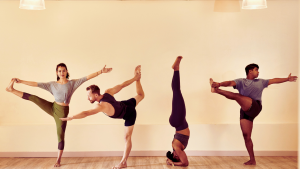
Photo from Canva Pro
Here are 3 things you can do to practice body acceptance:
- Create a really great feeling about yourself by naming the following things:
– 3 things your body can do
– 3 things you enjoy about you body
– 3 things you enjoy about your personality
– 3 things you have done or can put on your body (accessories or clothing) that feel good
– 1 recent accomplishment
Once you have everything listed, keep the list somewhere safe that you can access any time you are feeling low – a note on your phone, or a piece of paper in your purse or wallet. - Make a list of 10 things you love about yourself – you can choose to have some body orientated things on your list, or not. This is also a list you can keep handy to review when needed. Or even hang on your bedroom wall!
- Download my Body Image Tips guide to have a condensed reminder of all the things you’re reading in this blog article. A reminder of all the things you can do to create a healthy self image.
4. Be Body Aware
Being body aware means tuning into your body and using it as a really cool resource, instead of body shaming and bashing it all the time.
Think about how amazing your body is, and how informative – it’s constantly giving out messages! When you’re nervous or stressed, your stomach might be in knots, or your heart is beating faster. If you’re having a super fun time, or with people you love – your heart might feel expansive, your face might light up with love. The messages your bodies give you are a really cool thing.
Instead of thinking ‘this body is this thing that I must hate, that will never live up to any standards’ do a mindset switch to think ‘my body is actually SO cool and SO unique and there isn’t another one like it… My body is imperfect, and that’s okay! It’s capable of so many things – it is an amazingly beautiful information giving machine that can be a resource for me.’
You can tune into this ability, ideally every day, by stopping for a minute and noticing what messages your body is giving you; what kind of sensations. Is your stomach grumbling because you’re hungry? Are your toes tingly because you’ve been sitting down for a long time? Is your back tight because you’ve been in a hunched over position? Is your body feeling energized? Really good? Sluggish and wanting to move?
There are a few ways of doing this:
Pause for a minute, take a few deep breaths and notice how you feel from head to toe OR toe to head.
Mindfulness meditation practice – focus on just one part of your body. I will sit with my eyes closed and see if I can just pay attention to my left hand and see if I can notice any sensations in my hand, or my fingers. I try to notice the weight, sensations, and temperature of it. Then I’ll draw attention to my right hand and repeat the process.
Tune into your body by focusing on only one thing it’s doing. Focus on just your breaths, or your stomach as it expands and contracts.
As you’re noticing these different sensations, notice what your mind is telling you about your body – the messages that are showing up.
Are there moments when it’s being really kind? When you look in the mirror and think ‘I love what I did with my makeup! My arms are looking toned right now.’ Or is your mind telling you things like ‘this is not looking good right now. I wish I had a body like ________.’
Notice what the ratio is between good and bad thoughts. Are there more bad thoughts or good thoughts?
Go for a 5:1 ratio. Let’s say it takes saying 5 positive things to balance every 1 complaint or negative comment. Try this for yourself! Practice doing it on purpose – for every negative message your mind sends, create five good ones back!
Another thing you can do with these messages is to ask yourself – would I say the same thing to someone I love or care about? To my best friend? If the answer is no, ask yourself what you would say instead.
I want you to know that struggles with body image are not something you are alone in – even when it feels that way. Many, many teens – and adults! – are also struggling. If you’d like to connect with other teens just like you, and learn all of these tools in-person, with tangible things you can use to support your self-image, check out my upcoming Body Image Workshop for Teens.
You can reach out any time.
Love,
Chantal
 Chantal Côté (she/her) is a psychologist and teen life coach living in Calgary, Alberta. After over a decade in non-profit and community mental health, Chantal started Pyramid Psychology, a practice dedicated to supporting teens – a population she is constantly amazed by. Chantal is on a mission to help 100,000 teen girls (and their parents) build bulletproof mindsets so they can weather the ups and downs of life. As part of this goal, Chantal has had the privilege of speaking at various events – virtual and live – to support teens and parents.
Chantal Côté (she/her) is a psychologist and teen life coach living in Calgary, Alberta. After over a decade in non-profit and community mental health, Chantal started Pyramid Psychology, a practice dedicated to supporting teens – a population she is constantly amazed by. Chantal is on a mission to help 100,000 teen girls (and their parents) build bulletproof mindsets so they can weather the ups and downs of life. As part of this goal, Chantal has had the privilege of speaking at various events – virtual and live – to support teens and parents.
Outside of this passion, Chantal is often in nature, writing poetry, playing ball hockey and hanging out with her loved ones.
Each week, Chantal writes a blog article in response to issues she hears from the parents and teens she connects with. If you have something you’d like to read more on – email ideas and questions to info@pyramidpsychology.com or DM us via Instagram or Facebook.

